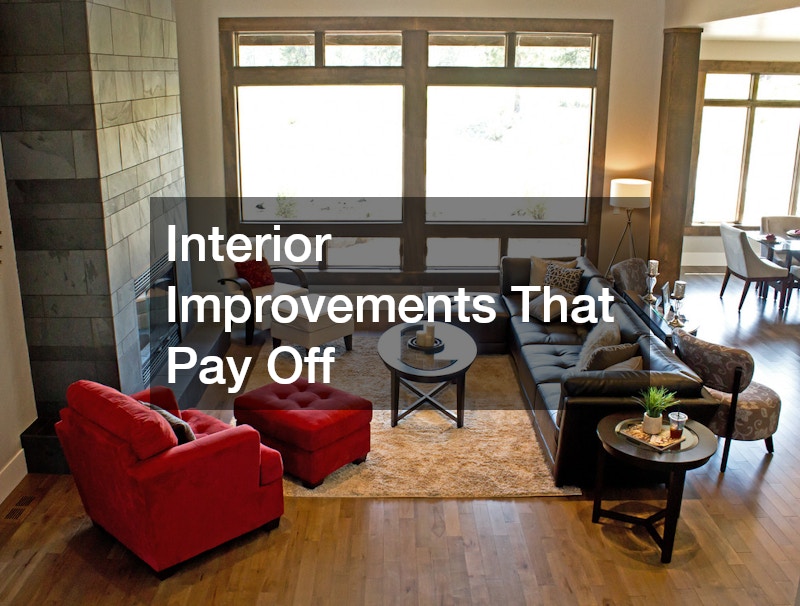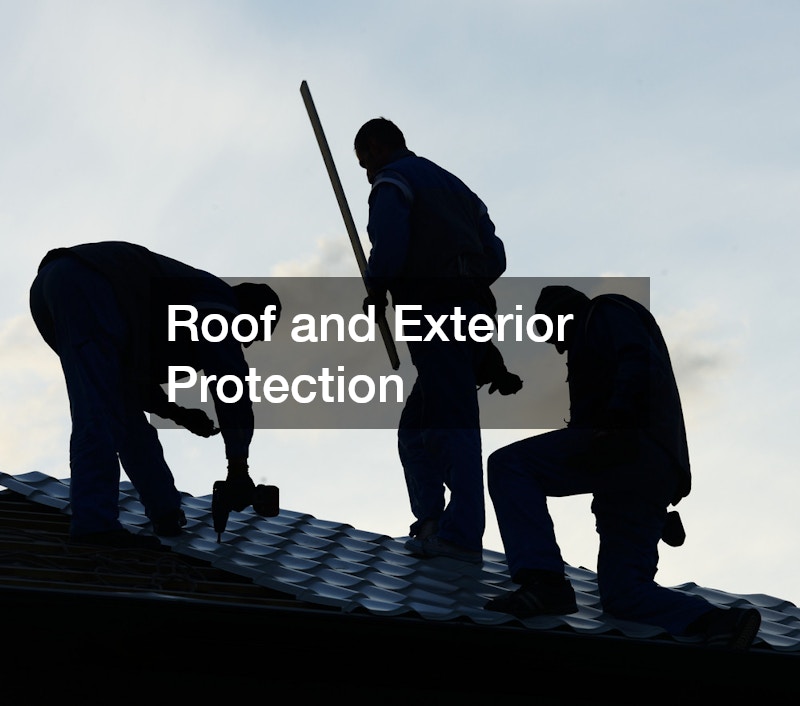When people buy or build a home, their first thought is usually how it will serve them and their families right now. The layout, the finishes, and the comfort all take priority. While these are certainly important, what many homeowners fail to think about is how each decision they make today will impact the property’s value years down the road. Your home is not just where you live; it is also one of your largest financial assets. Prioritizing future home value ensures that the money you put into your home now will continue to pay you back later.
This is not about chasing every design trend or over-improving your property with luxuries that few buyers want. Instead, it’s about carefully balancing your current needs with smart, long-term planning. By focusing on updates that increase functionality, improve efficiency, enhance safety, and protect structural integrity, you can protect your investment and ensure your home remains competitive on the market.
In this blog, we will take a deep dive into the many aspects that influence future home value. From curb appeal to maintenance to safety upgrades, each decision you make today has a direct effect on your home’s worth tomorrow.
The Importance of Market Awareness
One of the first things homeowners need to understand when considering future home value is that real estate markets are always evolving. Trends in buyer preferences, interest rates, and neighborhood dynamics all influence how much your home will be worth when it comes time to sell.
If your home is in an area with strong schools, desirable amenities, and low crime, its value will likely rise faster than one in a less appealing neighborhood. However, even if you can’t control your location, you can make strategic improvements that align with market demand. For example, if modern open-concept layouts are popular in your market, investing in remodeling that creates more open living space could make your home more desirable.
Keeping an eye on local listings also gives you a sense of what buyers expect. If comparable homes are selling quickly because they have updated kitchens, fresh siding, or renovated bathrooms, those are the upgrades that will help your home compete. By contrast, if your home lags behind in features or condition, buyers may skip over it entirely or offer significantly less.
Ultimately, being aware of your market ensures that every improvement you make is not just for your own enjoyment but also an investment in your financial future.
Enhancing Curb Appeal for Long-Term Gain
It may sound cliché, but first impressions matter. Curb appeal is often one of the strongest factors that influence whether a potential buyer even considers your home. A home that looks neglected or outdated from the outside can discourage buyers before they ever set foot inside.
Curb appeal encompasses everything from landscaping and paint color to the condition of your siding and roof. Something as simple as hiring siding contractors to update worn or damaged siding can transform the exterior of your home. New siding not only enhances visual appeal but also signals to buyers that the property has been maintained.
The garage also plays a big role. Many garage door companies now offer stylish, insulated options that improve both the look and energy efficiency of your home. A sleek garage door is often one of the first things buyers notice, and upgrading it is considered one of the highest-return investments in terms of resale value.
Landscaping shouldn’t be overlooked, either. Regular lawn care, fresh mulch, trimmed trees, and seasonal flowers can create a welcoming atmosphere. These relatively small investments can make your home stand out and reassure buyers that the entire property has been cared for.
By improving curb appeal now, you set the stage for a strong first impression later, which can directly increase your home’s selling price.
Interior Improvements That Pay Off
While curb appeal gets buyers in the door, the interior determines whether they want to stay. Homes that feel modern, functional, and move-in ready tend to attract the most attention and the highest offers.
One of the most cost-effective interior upgrades is hiring an interior painting contractor to refresh the walls. Neutral colors like light grays, beiges, or soft whites appeal to the broadest audience and make spaces feel larger and cleaner. Unlike bold or personalized color schemes, these choices allow buyers to imagine their own furniture and style in the home.
Beyond paint, kitchens and bathrooms are two of the most influential areas when it comes to resale value. Updating cabinets, replacing countertops, and installing modern fixtures can make a world of difference. Even smaller changes, such as new hardware or lighting, can breathe new life into these spaces without requiring a full remodel.
Flooring is another area worth consideration. Buyers often prefer hardwood, luxury vinyl planks, or other durable and modern materials. Replacing outdated carpets or worn flooring can immediately boost your home’s perceived value.
By making smart interior improvements gradually, you ensure that your home will be ready for resale when the time comes, without the stress of rushing through major projects right before listing.
Structural Integrity Matters
A beautiful home with underlying structural problems will have limited value. Buyers are cautious about homes with foundation issues, as repairs can be costly and complicated. That’s why maintaining structural integrity is one of the most critical aspects of preserving future home value.
If you suspect foundation problems, working with a house leveling service can help correct uneven floors, cracks, or shifting foundations. These issues rarely fix themselves and tend to worsen over time. By addressing them early, you not only protect your home’s structure but also reassure buyers that they won’t be inheriting expensive problems.
Excavation companies also play a role in protecting your home’s structural integrity. Poor drainage around the foundation can lead to water pooling, erosion, or even basement flooding. Professional excavation ensures proper grading, which directs water away from your home and preserves the strength of its foundation.
Structural soundness is not something buyers are willing to compromise on. When you invest in maintaining these critical elements, you protect your long-term equity.
Roof and Exterior Protection
Your roof is one of the first lines of defense against the elements. A damaged or outdated roof can cause leaks, mold, and interior damage—all of which reduce future home value. Regular inspections and timely repairs are essential for preserving both the functionality and appearance of your home.
If problems arise suddenly, contacting emergency roof repair services can prevent a minor issue from escalating into major damage. A roof replacement, while costly, is also one of the most valuable investments you can make, as it reassures buyers that they won’t need to take on that expense for years to come.
Pairing roof updates with exterior improvements like siding replacements or gutter upgrades creates a comprehensive package that signals to buyers that the home has been responsibly maintained. These updates protect your investment and strengthen your resale position.
Energy Efficiency and Modern Standards
In today’s housing market, buyers are paying increasing attention to energy efficiency. Rising utility costs and growing environmental awareness make energy-efficient homes highly desirable. Prioritizing these improvements now ensures your home will remain competitive in the future.
Consider installing energy-efficient windows, upgrading insulation, and replacing outdated HVAC systems with modern, efficient models. Even smaller updates, such as LED lighting and smart thermostats, make a difference in how buyers perceive your home.
Energy efficiency also provides benefits while you still live in the property. Lower utility bills mean you’re saving money month after month, all while positioning your home as an attractive option when it hits the market.
Health and Safety Considerations
A home’s health and safety features can make or break its value. Buyers want peace of mind, knowing they aren’t stepping into a property with hidden risks. Issues like asbestos, mold, radon, or lead paint can immediately reduce value and make your home harder to sell.
If your property contains older materials, working with local asbestos removal specialists ensures your home meets safety standards. Similarly, addressing mold through remediation services and improving air quality can make your property far more attractive to buyers.
Safety isn’t just about hazards inside the home. Security systems, outdoor lighting, and sturdy doors and windows also play a role in boosting buyer confidence. A secure home is more marketable and often commands a higher price.
Functional Additions That Last
When thinking about additions, the key is to prioritize functionality and longevity. Additions that provide real value will always enhance future home value, while trendy or overly customized features may not.
Barndominium builders, for instance, create versatile living spaces that combine style with function. These types of projects appeal to buyers who want unique but practical living arrangements. Similarly, finishing basements, adding a home office, or expanding outdoor living areas can make a property more versatile and appealing.
The goal is to think about features that multiple buyers would appreciate, rather than hyper-specific upgrades that only suit your current needs.
Plumbing and Waste Management
Plumbing is another area that directly affects your home’s long-term value. Problems with septic systems, sewer lines, or water pressure can quickly become deal-breakers for buyers.
Working with a local septic company ensures that your system is properly maintained and avoids costly emergencies. Routine septic cleaning not only prevents unpleasant issues but also shows buyers that you’ve stayed on top of maintenance.
Buyers often ask for maintenance records during the sales process. Being able to provide documentation of regular septic cleaning and plumbing care can give your property a significant advantage.
Preparing for Resale With Versatile Spaces
Homes that adapt to a variety of lifestyles are more attractive to buyers. Open floor plans, multipurpose rooms, and flexible outdoor spaces all add value because they allow buyers to customize the home to their needs.
For example, a bonus room can be staged as a home office, gym, or playroom, giving buyers options to imagine their own lifestyle in the space. Outdoor patios with covered seating areas or kitchens also add functional living space, making your home stand out.
By focusing on versatility, you make your home appealing to a wider range of buyers, which typically results in faster sales and stronger offers.
Long-Term Maintenance Planning
Perhaps the most overlooked aspect of preserving future home value is regular maintenance. Too often, homeowners delay necessary repairs until they become emergencies. This not only costs more in the long run but also reduces resale value.
Creating a maintenance schedule for your home is a simple yet powerful step. Regular inspections of your roof, plumbing, foundation, and HVAC systems allow you to catch problems early. Keeping receipts and records of this maintenance also reassures buyers that the property has been responsibly managed.
Buyers want move-in ready homes. A property that shows evidence of long-term care is much more attractive than one that needs immediate work.
The Emotional Value for Buyers
While facts and figures matter, buying a home is also an emotional decision. Buyers want to feel good about the property they are considering. A clean, well-maintained, and modern home creates a sense of security and excitement.
When buyers can picture themselves living comfortably in a space without having to tackle immediate projects, they are often willing to pay more. That emotional connection is a powerful driver of value, and it starts with the decisions you make years before listing your property.
Why Future Home Value Should Always Be Top of Mind
When it comes down to it, prioritizing future home value is about foresight and responsibility. Each decision—whether it’s hiring an interior painting contractor, scheduling septic cleaning, working with siding contractors, or calling emergency roof repair services—has a direct impact on your home’s worth.
By treating your home as a long-term investment, you protect yourself financially and position your property as a strong contender in the housing market. Neglect, on the other hand, can erode your equity and cost you significantly when it’s time to sell.
Your home is more than just the place you live—it’s a cornerstone of your financial future. Every choice you make now, from maintenance to upgrades, plays a role in your property’s value years down the line. By prioritizing future home value, you ensure that you not only enjoy a safe, comfortable living space today but also maximize your return on investment tomorrow.
Whether you’re coordinating with excavation companies to protect your foundation, working with barndominium builders for functional additions, or calling a local septic company for routine septic cleaning, each action builds toward a stronger financial outcome. The decisions you make today lay the foundation for tomorrow’s equity, and by keeping future home value in mind, you set yourself up for lasting success.




